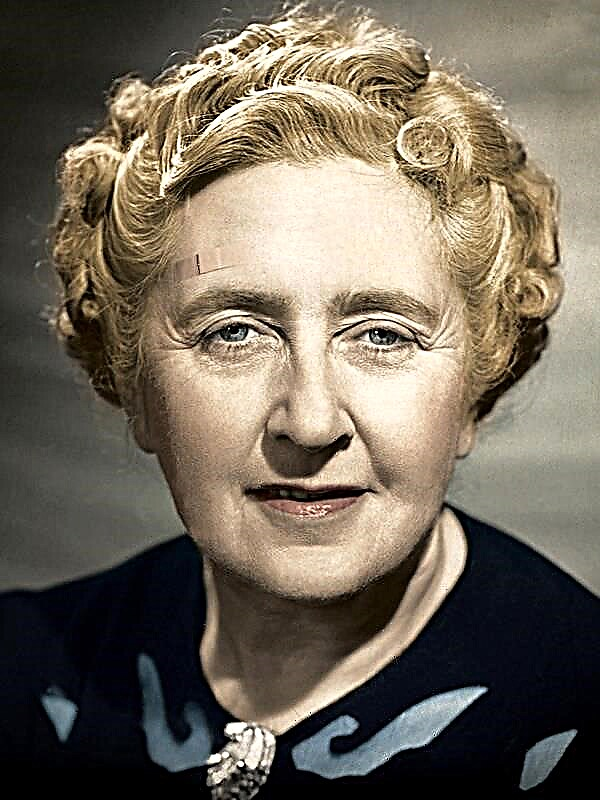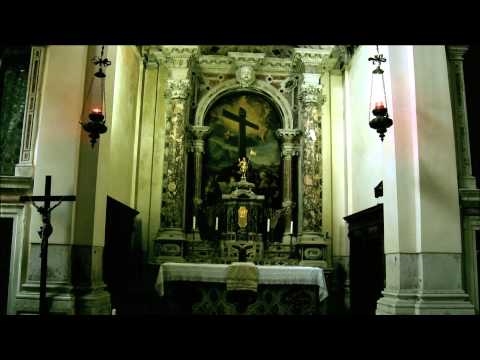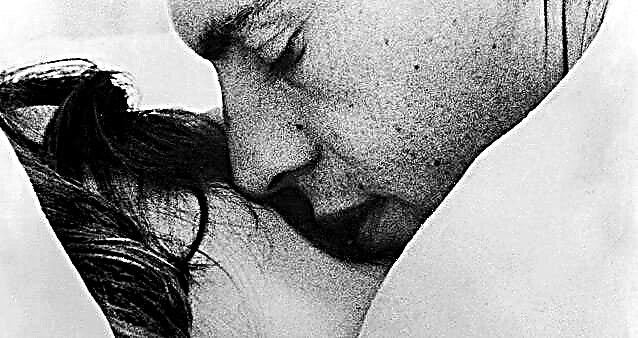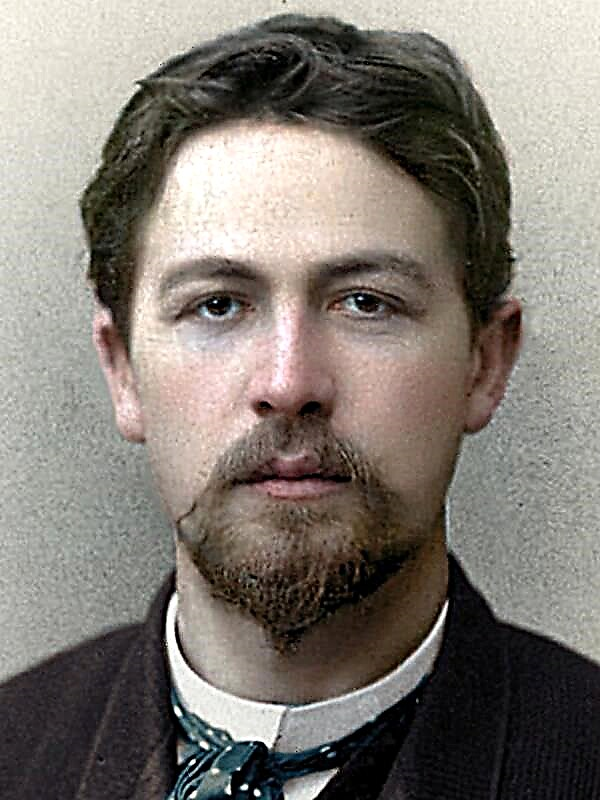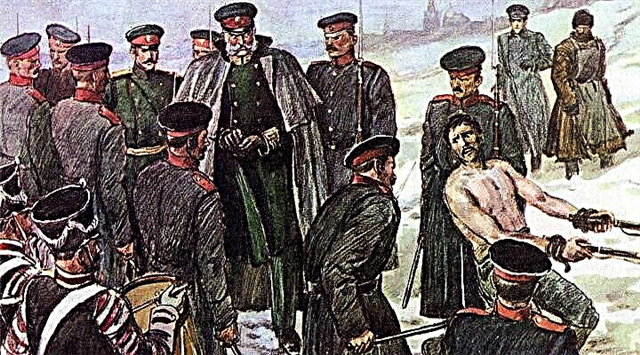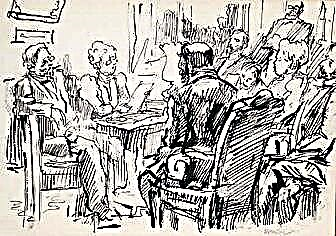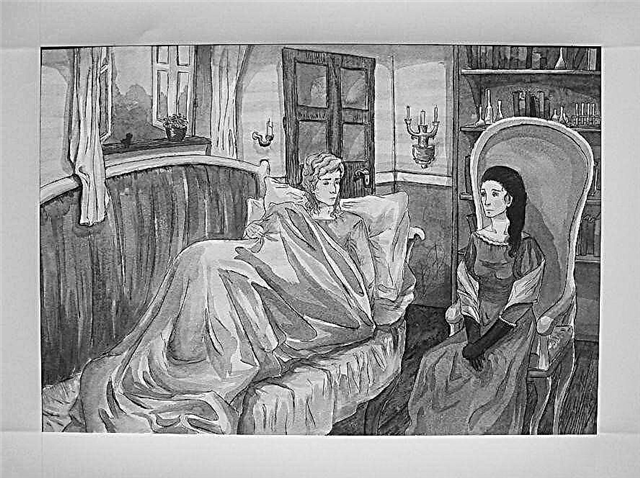A young man of twenty-six is a petty official who has lived for eight years in St. Petersburg in the 1840s, in one of the apartment buildings along the Catherine’s Canal, in a room with a web and smoky walls. After the service, his favorite pastime is walking around the city. He notices passers-by and at home, some of them become his "friends." However, among people he has almost no acquaintances. He is poor and lonely. With sadness, he watches as residents of St. Petersburg gather to the cottage. He has nowhere to go. Having gone out of town, he enjoys the northern spring nature, which looks like a "stunted and ailing" girl, for a moment becomes "wonderfully beautiful."
Returning home at ten in the evening, the hero sees a female figure at the canal grill and hears a sob. Sympathy encourages him to meet, but the girl fearfully runs away. The drunk is trying to pester her, and only the “knob stick”, which is in the hero’s hand, saves a pretty stranger. They talk to each other. The young man admits that before he knew only “mistresses”, he never spoke with “women” and therefore is very timid. This calms the fellow traveler. She listens to the story about the "novels" that the guide saw in dreams, about falling in love with ideal fictional images, about the hope of someday waking up with a girl worthy of love. But here she is almost at home and wants to say goodbye. The dreamer begs for a new meeting. The girl “needs to be here for herself,” and she is not against the presence of a new acquaintance tomorrow at the same hour at the same place. Her condition is “friendship”, “but you cannot fall in love.” Like the Dreamer, she needs someone to trust, whom to ask for advice.
In the second meeting, they decide to listen to each other's “stories”. The hero begins. It turns out that he is a “type”: in “strange corners of St. Petersburg” there live “similar creatures of the middle kind” - “dreamers” - whose “life is a mixture of something purely fantastic, hot-ideal and at the same time dull-mundane and ordinary ". They are frightened of the society of living people, as they spend long hours among the "magic ghosts", in "enthusiastic dreams," in imaginary "adventures." “You say, you are reading a book,” Nastya guesses the source of the subjects and images of the interlocutor: the works of Hoffmann, Merimee, V. Scott, Pushkin. After delightful, “voluptuous” dreams, it hurts to wake up in “loneliness”, in your “musty, unnecessary life”. The girl pities her friend, and he himself understands that "such a life is a crime and sin." After the "fantastic nights" on him already "find sobering up minutes, which are terrible." "Dreams survive," the soul wants a "real life." Nastya promises the Dreamer that they will now be together. And here is her confession. She is an orphan. Lives with an old blind grandmother in a small own house. Until the age of fifteen, she had been studying with the teacher, and for the last two years she has been sitting, “pinned” with a pin to the dress of her grandmother, who otherwise cannot follow her. A year ago they had a tenant, a young man of "good looks." He gave his young mistress the books of W. Scott, Pushkin and other authors. He invited them with his grandmother to the theater. The opera "The Barber of Seville" was especially remembered. When he announced that he was leaving, the poor recluse decided on a desperate act: she packed her things in a bundle, came to the room of the tenant, sat down and “cried in three streams”. Fortunately, he understood everything, and most importantly, managed to love Nastenka before that. But he was poor without a “decent place," and therefore could not marry right away. They agreed that exactly one year later, returning from Moscow, where he hoped to "arrange his affairs," the young man would wait for his bride on a bench near the canal at ten o’clock in the evening. A year has passed. He has been in St. Petersburg for three days. He is not in the appointed place ... Now the hero can clearly understand the reason for the girl’s tears on the evening of meeting. Trying to help, he volunteers to hand over her letter to the groom, which he does the next day.
Due to rain, the third meeting of the heroes occurs only through the night. Nastya is afraid that the groom will not come again, and cannot hide his excitement from a friend. She feverishly dreams of the future. The hero is sad, because he himself loves the girl. Nevertheless, the Dreamer suffers selflessness to console and reassure the fallen Nastenka. Touched, the girl compares the groom with a new friend: "Why is he - not you? .. He is worse than you, although I love him more than you." And he continues to dream: “Why are we all not so, like brothers and brothers? Why does the best person always seem to hide something from another and remain silent from him? Everyone looks like he’s harsher than he really is ... "Gratefully accepting the sacrifice of the Dreamer, Nastya also cares about him:" you are recovering, "" you will love ... "" God bless you with her ! " In addition, now with the hero forever and her friendship.
And finally, the fourth night. The girl finally felt abandoned "inhumane" and "cruel." The dreamer again offers help: go to the offender and make him “respect” Nastya’s feelings. However, pride awakens in her: she no longer loves the deceiver and will try to forget him. The “barbaric” act of the tenant sets off the moral beauty of a friend sitting next to him: “would you not do that? “would you not have thrown the one that would come to you into the eyes of the shameless mockery of her weak, stupid heart?” The dreamer no longer has the right to hide the truth already guessed by the girl: “I love you, Nastenka!” He does not want to “torment” her with his “egoism” in a bitter moment, but what if his love turns out to be necessary? And indeed, the answer is heard: “I do not love him, because I can only love that which is generous, that understands me, that is noble ...” If the Dreamer waits until her former feelings have completely settled down, then the girl’s gratitude and love will be him alone. Young people joyfully dream of a shared future. At the moment of their farewell, the groom suddenly appears. Screaming, trembling, Nastya breaks out of the hero's hands and rushes towards him. Already, it would seem, the fulfilling hope for happiness, for a genuine life leaves the Dreamer. He silently stares after the lovers.
The next morning, the hero receives a letter from a happy girl asking for forgiveness for an involuntary deception and with gratitude for his love, which “cured” her “dead heart”. The other day she is getting married. But her feelings are contradictory: “Oh God! if only I could love you both at once! ” And yet the Dreamer must remain "forever different, brother ...". Again, he is alone in a suddenly "aged" room. But even after fifteen years, he fondly recalls his short-lived love: “May you be blessed for the moment of bliss and happiness that you gave to another, lonely, grateful heart! A whole minute of bliss! But isn’t this enough even for the whole human life? .. "

